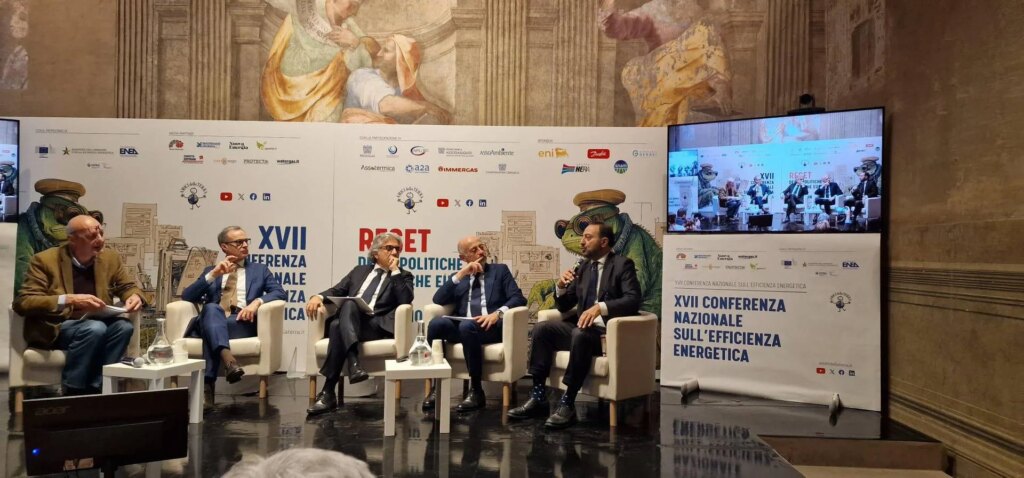
The XVII National Conference on energy efficiency organized by Friends of the Earth opened the process by placing the need to reorganize European policy at its center. “The analysis of the data and results achieved by the European Union clearly highlights a truth that is now difficult to dispute: the path outlined by the European Green Deal has proven to be ineffective and contradictory – said Friends of the Earth president Monica Tommasi – For those who, like Friends of the Earth, have expressed a critical position towards the Green Deal framework from the beginning, its failure is not a surprise. But today, with wider awareness also at the institutional level, as evidenced by the recent statements of Prime Minister Giorgia Meloni, it has become important to start reflection based on facts, data and political responsibility”.
“To overcome Europe’s impasse, it is not enough to simply correct the limitations of the Green Deal: we need to abandon its ideological approach, which is based on a disastrous approach to climate change and increasingly conditioned by China’s economic and geopolitical strategy”, observes Friends of the Earth which “needs to relaunch Europe’s energy climate policy with a new approach based on technological neutrality, realistic goals and prioritization of energy efficiency, increasing the role of heat pumps, district heating, waste energy recovery, biofuels and maximizing synergies with Italian and European industrial supply chains”.
For Matteo Cimenti, president of Assogasliquidi-Federchimica, “a review of the European regulatory framework is urgent to enable a truly sustainable energy transition. Our associated companies are investing in bioLPG, renewable DME and bioLNG, but we need clear and flexible regulations that increase biofuels in their end uses for both light and heavy mobility as well as for the residential sector”.
“We ask that the community regulatory review process regarding CO2 emissions be carried out quickly, remove the ban on the use of internal combustion engines and introduce a ‘carbon correction factor’ to recognize the contribution of renewable fuels – said Cimenti – At the same time, even in the residential sector, it is important to adopt a pragmatic approach: modern condensing boilers powered by renewable gases allow the targets of the EPBD directive to be achieved at much lower costs and without inconvenience for consumers, showing that decarbonization can be achieved with diversified technological solutions and not based on one option alone. it is possible to reduce emissions, support investment and guarantee solutions accessible to society, avoiding unrealistic goals that risk harming Europe and Italy.”





